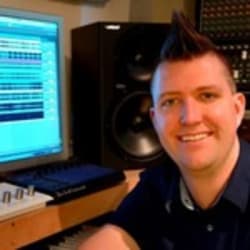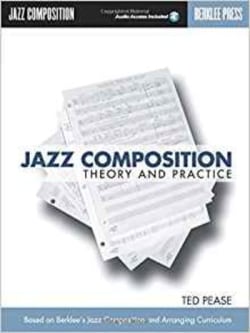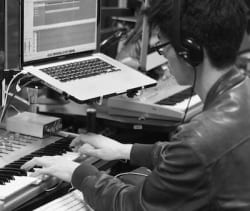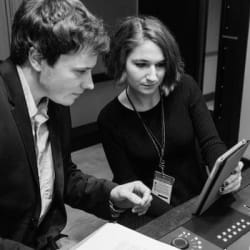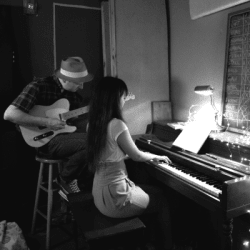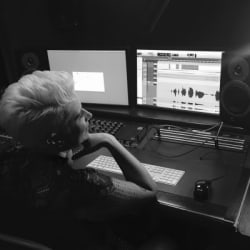Images
About this Course
Learn about the music production process—including recording, editing, and mixing—and the tools available to you to create contemporary music on your computer. With the recent introduction of high-quality-low-cost software and hardware, the tools of music production are now available to the masses. Albums are made in bedrooms as well as studios. On the surface this is liberating. Anyone can make an album for the low cost of a couple pieces of gear and a software package. But, if you dig deeper, you will find that it is not so easy. Producing music requires knowledge, dedication, and creativity. Knowledge is where this course comes in. No matter what kind of music you are making, there is a large set of tools that you will need to use. Each lesson of this course will demonstrate a different set of music production tools, loosely following along the music production process of recording, editing, and mixing. We will start with some background on the nature of sound and how we perceive it. We will then examine the components necessary to record audio into a computer, so that you understand the devices that sound must travel through in a music production process. Once recorded, sound must be organized along a timeline, a process known as editing. It allows us to give the impression of perfect performances and create many of the sounds we hear in contemporary music. The contemporary editing tool is the Digital Audio Workstation (DAW), a piece of software that stores and organizes all the assets of a musical project. We will focus on the editing tools that are essential in contemporary music production and that all DAWs provide. After editing, sounds must be combined or mixed together, so we look to the mixing board—a very creative place if you know how to use it. We will explore the basic functionality of both hardware and software mixing boards, including volume, pan, mute, solo, busses, inserts, sends, and submixes. The mixing process, however, includes more tools than the mixing board provides on its own. Sound must also be processed, modified from its recorded state to fit the context of the music. We will look at compression, equalization, and delay, and examine the many audio effects that are offshoots of these devices and how they are used in a musical context. In the end, the music production process relies on your creativity. Creativity is a product of the mind and will stay there, unexpressed, until the right tools are used in the right way to share it with the world. If you have an idea in your head, it will take numerous steps, each with an important tool, to reach your audience. You bring the dedication and creativity, and this course will bring you the knowledge to make that happen.
Subtitles available in English, Spanish, Chinese (Simplified)
7 weeks of study, 3-6 hours/week
Similar resources
Founded on jazz, the music of the African diaspora, and a dedication to contemporary music, Berklee is a singular institution for the study of the performing arts. The institution continues to integrate and find connections between its historical roots and the contemporary worlds of music, dance, and theater. Berklee is a place where artists come together to innovate and collaborate, and where artistic and cultural diversity is embraced and celebrated. This ethos permeates all aspects of Berklee—from teaching and learning to administration and governance—and is fundamental to the Berklee experience.
Berklee continually cultivates its own promise—stretching, expanding, and reinventing itself in a rapidly changing world. In recent years, Berklee has opened new campuses in New York City and Valencia, Spain, and grown Berklee Online into the world’s largest online music school. In 2016, the Boston Conservatory—the oldest and one of the most prestigious conservatories in the U.S. for dance, music, and theater—joined forces with Berklee College of Music, establishing a performing arts training institution unparalleled in its breadth and depth. As a combined institution, Berklee is an education powerhouse with global reach and vast cultural impact.


Designing Synthesizer Sounds

Jazz Composition: Theory and Practice

Creating Synthesizer Sounds for Electronic Music (Project-Centered Course)

Music Business Foundations

Songwriting









